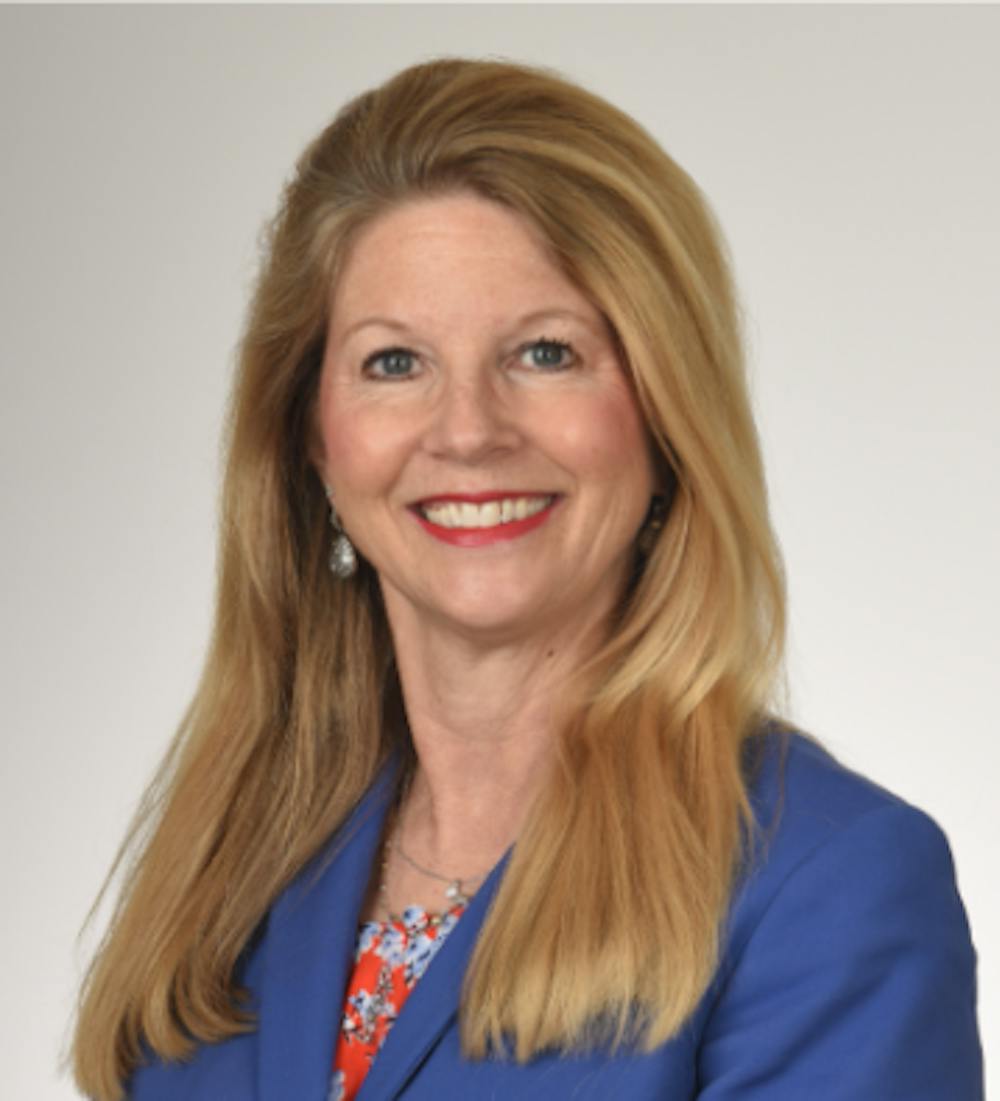Lori McMahon, the newly appointed vice president for research, emphasized her plans to support interdisciplinary collaboration during her upcoming tenure in an interview with The Cavalier Daily. With a background in neuroscience research at multiple universities, McMahon said she was drawn to the University due to its research initiatives, specifically in the healthcare sector.
The University announced that they selected McMahon April 8, and her appointment is slated to begin June 15, pending approval by the Board of Visitors at their June meeting. The University began the search for a new permanent leader for the role last September when Melur K. Ramasubramanian, the previous vice president for research, left the position to assume the role of senior adviser to the president for research. Since then, Biomedical Engineering Prof. Fred Epstein has served as interim vice president for research.
The Office of the Vice President for Research reports to President Jim Ryan and is responsible for the integration and enhancement of research activities across the University’s twelve schools and multiple research centers, including the new School of Data Science. In addition, the office develops and executes initiatives to accomplish the strategic vision and research goals of the University’s 2030 Plan, which outlines long term strategies to make the University “the best public University by 2030.”
McMahon said she was drawn to the University after reading the 2030 Plan and that she was inspired by the vision of Ryan and other University leaders.
“I loved the words that I read in the 2030 Plan to serve the public through the fearless search for the truth,” McMahon said. “That resonated with me as a scientist who has spent my career searching for the truth when we do our experiments to understand the brain.”
McMahon cited the five research areas outlined in the 2030 plan, known as the Grand Challenges Research Investments, as top priorities for her tenure. These areas include democracy, environmental resilience and sustainability, precision medicine, the brain and neuroscience and digital technology and society.
“I want to instill a sense of urgency to problem solve,” McMahon said. “My focus will be on making sure those Grand Challenges are highly successful and that the students and the faculty feel supported by me.”
According to Epstein, the Office of the Vice President for Research has already begun engaging in data-related research during the last eight months, particularly within the area of precision medicine, as well as health and digital technology and society. Projects in these areas included the Clinical Data Repository, a clinical data warehouse containing clinical and administrative information on patients and clinical encounters at the University from before June 2017, and the Research Data Enclave, an initiative designed to expand data-related services at the University.
McMahon comes to the University with a wealth of relevant experience. She has held the vice president for research position at the Medical University of South Carolina since 2021, and prior to her stint at MUSC, she directed the University of Alabama at Birmingham’s Comprehensive Neuroscience Center for eight years. McMahon also served as dean of the UAB graduate school for six years.
Having taught neuroscience at MUSC and led a neuroscience lab their for over 20 years, McMahon said she plans to continue her research work on neurodegenerative diseases during her time at the University.
McMahon also noted that her past roles at other universities taught her the importance of collaborating and bringing diverse groups of people and disciplines together, which she plans to do at the University.
“Where I've been a part of the greatest success is working at the interface of disciplines,” McMahon said, “I think that's where the solutions are for the world's biggest problems”.
McMahon said that during her upcoming tenure, conducting research computing and artificial intelligence through the new School of Data Science will be a key initiative of hers. The new data science building in the Emmett-Ivy corridor opened April 26 and is designed to help the University become a leader in data science.
McMahon also said she hopes to increase awareness about the office at large through hosting town hall events throughout the year to share policy changes, new initiatives and research progress with the community. She said she intends to make her office accesible to the entire University community.
To help facilitate an open relationship between The Office of the Vice President for Research and the rest of the University community, McMahon said she plans to have an open door policy for colleagues to stop by and share their challenges or successes with her. She said she is excited by the challenge of working with new people.
“I'm a people person, I love to work with people,” McMahon said. “I can’t wait to work with all of the talented faculty, students and staff to put in place the vision that's in front of us.”
University Deputy Spokesperson Bethanie Glover said that McMahon exceeds all their qualifications for the role.
“[McMahon] brings strong research experience to the University, as well as demonstrated academic leadership and a commitment to curiosity and public service in pursuit of [the University’s] 2030 goal to become an international leader in key research areas,” Glover said.





